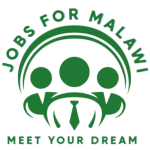Job Description
Job Description
Background
Diversity, Equity and Inclusion are core principles at UNDP: we value diversity as an expression of the multiplicity of nations and cultures where we operate, we foster inclusion as a way of ensuring all personnel are empowered to contribute to our mission, and we ensure equity and fairness in all our actions. Taking a ‘leave no one behind’ approach to our diversity efforts means increasing representation of underserved populations. People who identify as belonging to marginalized or excluded populations are strongly encouraged to apply. Learn more about working at UNDP including our values and inspiring stories.
UNDP does not tolerate sexual exploitation and abuse, any kind of harassment, including sexual harassment, and discrimination. All selected candidates will, therefore, undergo rigorous reference and background checks.
The Government of Malawi faces significant challenges due to the absence of a harmonized national management information system (HMIS) that integrates Management Information Systems (MIS) across Ministries, Departments, and Agencies (MDAs). Currently, these systems operate independently, leading to fragmented data management and coordination issues. This fragmentation hinders the aggregation and effective management of data, posing obstacles to evidence-based decision-making at national, local council, and community levels.
Several key reports, including the Demand for and Supply of Evaluations in Malawi (2013), the Malawi M&E Master Plan (2012), and the State of M&E in Malawi (2014), underscore the critical need to strengthen Monitoring and Evaluation (M&E) frameworks. These documents highlight the benefits of establishing a centralized data repository to enhance data aggregation, storage, and sharing capabilities. Without such a system, many interventions are implemented without sufficient evidence, and where evidence exists, its quality is often compromised due to outdated or insufficient data.
The absence of a central M&E system exacerbates various challenges:
- Weak knowledge management within MDAs.
- Reliance on paper-based data collection leading to poor data quality and reporting delays.
- Multiple projects with independent M&E systems complicating result monitoring and lesson-learning.
- Fragmented databases contributing to disjointed Management Information Systems (MIS).
- Inconsistent evaluation systems hindering the tracking and potential duplication of evaluation efforts.
To address these issues, the United Nations Development Programme (UNDP) is planning to recruit three Software Developers to spearhead the development of the Harmonized National Management Information System (HNMIS) for the Government of Malawi. This initiative aims to unify disparate MIS into a cohesive platform that supports efficient data management, facilitates informed decision-making, and enhances program effectiveness across the country. By establishing the HNMIS, Malawi seeks to streamline data processes, improve data quality, and foster a more integrated approach to monitoring, evaluation, and knowledge management across all sectors and levels of governance.
Scope of work
Full stack open-source software development plays a crucial role as the detailed bridge between enterprise architecture and technical implementation, focusing on specific technologies to address targeted business challenges. By seamlessly combining enterprise goals, solution design, and technical implementation, this role ensures a holistic and effective approach to technological solutions across Android, iOS, web, Linux, and Windows platforms.
Solution Architect Role Description and Responsibilities:
High-Level Responsibilities: The Full Stack Open-Source Software Developer focuses on solution-level decisions, analyzing their impact on overall business goals. Responsibilities include developing a strategic technical vision, architecting scalable solutions, and overseeing the entire development process from conception to deployment across multiple platforms.
Duties and Responsibilities
1. Analyzing the Technology Environment:
- Assess the existing technology ecosystem across mobile, web, and desktop platforms;
- Propose open-source solutions aligned with business goals and industry best practices;
- Stay informed about emerging trends and technologies in open-source development.
2. Analyzing Enterprise Specifics:
- Collaborate with product owners and stakeholders to understand unique project needs;
- Align technical solutions with the specific aspects of each project or product;
- Ensure scalability and maintainability of solutions across different platforms.
3. Analyzing and Documenting Requirements:
- Work closely with stakeholders to gather, analyze, and document project requirements;
- Create detailed technical specifications for Android, iOS, web, Linux, and Windows applications;
- Ensure requirements are clear, feasible, and aligned with open-source principles.
4. Setting the Collaboration Framework:
- Set up version control systems and define branching strategies for collaborative development;
- Implement coding standards and best practices for cross-platform development;
- Establish code review processes to maintain code quality across all platforms.
5. Creating a Solution Prototype:
- Develop rapid prototypes or proof of concepts to validate technical approaches;
- Use tools like React Native for cross-platform mobile prototypes;
- Create wireframes or mock-ups for web and desktop applications to gather early feedback.
6. Participating in Technology Selection:
- Evaluate and select appropriate open-source technologies for each platform (Android, iOS, web, Linux, Windows);
- Ensure compatibility and integration between different technologies in the stack;
- Consider factors such as performance, community support, and long-term viability of chosen technologies.
7. Controlling Solution Development:
- Lead the development efforts across all platforms, ensuring consistency and code re-usability where possible;
- Implement back-end services that can support multiple front-end applications;
- Ensure proper implementation of security measures across all layers of the application stack.
8. Supporting Project Management:
- Provide accurate time and resource estimates for development tasks;
- Collaborate with project managers to plan sprints and allocate resources effectively;
- Identify and mitigate technical risks throughout the development lifecycle.
Institutional Arrangement:
This position will be based in Inclusive Digital Transformation for Malawi (IDT4M) project office, Lilongwe and will be reporting to the ICT Specialist.
Competencies
Core
- Achieve Results: LEVEL 1: Plans and monitors own work, pays attention to details, delivers quality work by deadline.
- Think Innovatively: LEVEL 1: Open to creative ideas/known risks, is pragmatic problem solver, makes improvements.
- Learn Continuously: LEVEL 1: Open minded and curious, shares knowledge, learns from mistakes, asks for feedback.
- Adapt with Agility: LEVEL 1: Adapts to change, constructively handles ambiguity/uncertainty, is flexible.
- Act with Determination: LEVEL 1: Shows drive and motivation, able to deliver calmly in face of adversity, confident.
- Engage and Partner: LEVEL 1: Demonstrates compassion/understanding towards others, forms positive relationships.
- Enable Diversity and Inclusion: LEVEL 1: Appreciate/respect differences, aware of unconscious bias, confront discrimination.
Cross-Functional & Technical competencies
Data engineering:
- Ability in programming languages such as SQL, Python, and R, be adept at finding warehousing solutions, and using ETL (Extract, Transfer, Load) tools, and understanding basic machine learning and algorithms.
Programming, Web and App Development:
- Ability to build websites, platforms and apps that are effective and intuitive to use.
Digital product Management:
- Ability to design and lead digital product development including testing, ongoing product iteration, product strategy and delivery.
Customer Satisfaction /Client Management:
- Ability to respond timely and appropriately with a sense of urgency, provide consistent solutions, and deliver timely and quality results and/or solutions to fulfill and understand the real customers’ needs.
System thinking:
- Ability to use objective problem analysis and judgement to understand how interrelated elements coexist within an overall process or system, and to consider how altering one element can impact on other parts of the system.
Strategic thinking:
- Ability to leverage learning from a variety of sources to anticipate and respond to future trends; to demonstrate foresight in order to model what future developments and possible ways forward look like for UNDP.
Required Skills and Experience
Education:
- Advanced university degree (master’s degree or equivalent) in in computer science, Software Engineering, or related field is required, or
- A first-level university degree (bachelor’s degree) in combination with an additional two years of qualifying experience will be given due consideration in lieu of the advanced university degree.
Experience:
- Minimum of 2 years (with master’s degree) or 4 years (with bachelor’s degree) of relevant experience at the national or international level as software developer or relevant related field is required;
- Experience in the use of computers and office software packages (MS Word, Excel, etc.). and advanced knowledge of web-based management systems such as ERP;
- Demonstrated experience in solution-level decision-making, showcasing a track record of successfully architecting and implementing effective solutions for diverse projects;
- Proven expertise in estimating budgets, including the ability to conduct detailed cost analyses and provide accurate financial projections;
- In-depth and proven knowledge of monitoring and optimizing development processes, with a focus on enhancing efficiency and achieving project milestones.
- A proven background in collaborating with cross-functional teams, fostering effective communication, and ensuring the seamless integration of technology solutions within organizational frameworks;
- Previous experience in navigating and addressing challenges associated with technology scalability, security, and interoperability;
- Proven continuous professional development and staying abreast of industry best practices to adapt to evolving technological landscapes;
- Full-stack proficiency in multiple programming languages, including JavaScript/TypeScript, Java, Kotlin, Swift, C# etc., with working knowledge of Python and Ruby;
- Expertise in cross-platform mobile development using React Native, as well as native Android (Java/Kotlin) and iOS (Swift) development, including app deployment processes;
- Advanced web development skills, including React.js for front-end, Node.js and Express.js for back-end, RESTful API design, and working knowledge of GraphQL;
- Proficiency in database technologies, including relational (e.g., PostgreSQL, MySQL, SQLite) and NoSQL databases (e.g., MongoDB, Cassandra), along with ORM frameworks;
- Strong DevOps skills, including version control (Git), CI/CD pipelines, containerization (Docker), cloud platforms (e.g., AWS, Azure, Google Cloud), and security best practices (OWASP principles, authentication/authorization mechanisms).
Required Languages:
- Fluency in English and Chichewa.
Disclaimer
Applicant information about UNDP rosters
Note: UNDP reserves the right to select one or more candidates from this vacancy announcement. We may also retain applications and consider candidates applying to this post for other similar positions with UNDP at the same grade level and with similar job description, experience and educational requirements.
Non-discrimination
UNDP has a zero-tolerance policy towards sexual exploitation and misconduct, sexual harassment, and abuse of authority. All selected candidates will, therefore, undergo rigorous reference and background checks, and will be expected to adhere to these standards and principles.
UNDP is an equal opportunity and inclusive employer that does not discriminate based on race, sex, gender identity, religion, nationality, ethnic origin, sexual orientation, disability, pregnancy, age, language, social origin or other status.
Scam warning
The United Nations does not charge any application, processing, training, interviewing, testing or other fee in connection with the application or recruitment process. Should you receive a solicitation for the payment of a fee, please disregard it. Furthermore, please note that emblems, logos, names and addresses are easily copied and reproduced. Therefore, you are advised to apply particular care when submitting personal information on the web.


